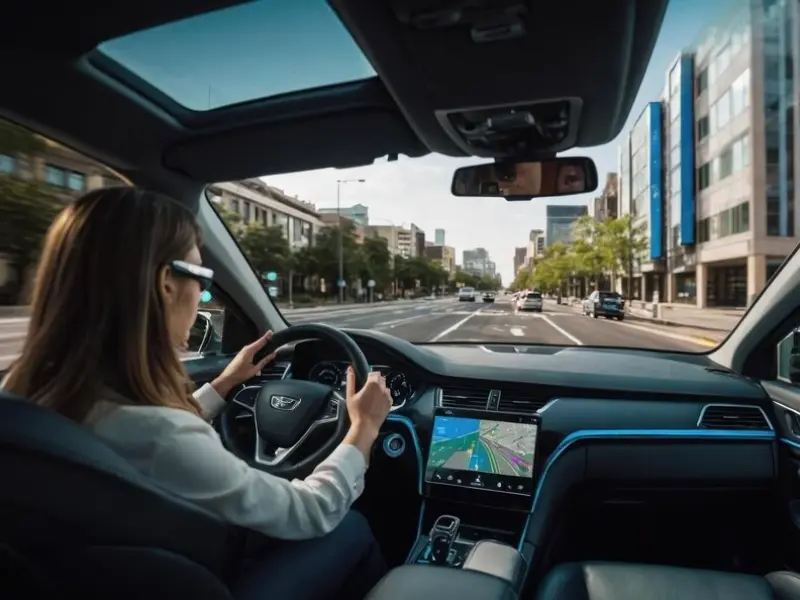- Autonomous vehicles are subject to a complex web of laws and regulations that govern their design, operation, and deployment.
- Governments worldwide are implementing safety standards specifically tailored to autonomous vehicles to ensure their safe operation on public roads.
- The legal landscape surrounding autonomous vehicles includes provisions for liability and insurance in the event of accidents or collisions.
The emergence of autonomous vehicles heralds a new era of transportation, promising enhanced safety, efficiency, and accessibility on our roads. As self-driving technology continues to advance, governments around the world are grappling with the need to establish comprehensive legal frameworks to regulate these innovative vehicles.
Vehicle design and performance standards
One of the cornerstone laws governing autonomous vehicles pertains to their design and performance standards. These standards encompass various aspects, including the vehicle’s hardware and software systems, safety features, and operational capabilities.
For example, in the UK, the Automated and Electric Vehicles Act 2018 outlines requirements for ensuring the safety and security of autonomous vehicles, including provisions for cybersecurity measures and data protection protocols. The Federal Automated Vehicles Policy, developed by the US Department of Transportation, sets forth guidelines and standards for AV development, testing, and deployment in the United States, addressing key areas such as vehicle performance, cybersecurity, data privacy, and regulatory compliance, aiming to foster innovation while protecting public safety and consumer rights.
Also read: UK aims for fully self-driving cars by 2026
Testing and certification requirements
Governments impose stringent testing and certification requirements to assess the safety and reliability of autonomous vehicles before they are allowed to operate on public roads. These requirements often involve rigorous testing procedures, such as simulated driving scenarios and real-world trials, to evaluate the vehicle’s performance under different conditions.
In the United States, the National Highway Traffic Safety Administration (NHTSA) oversees the testing and certification process for autonomous vehicles, ensuring compliance with The Federal Automated Vehicles Policy. In Singapore, all AVs must undergo stringent safety assessments conducted at the Centre of Excellence for Testing and Research of AVs-NTU (CETRAN) AV Test Centre according to Road Traffic Act, before they can run on roads.
Driver licencing and training
As autonomous vehicles shift the paradigm of transportation towards automation, laws governing driver licencing and training are undergoing revisions to accommodate this transition. Some jurisdictions require special endorsements or training programs for individuals operating autonomous vehicles, while others may introduce new licensing categories for autonomous vehicle operators.
For instance, in Germany, the Autonomous Driving Act (Autonomes Fahren) establishes requirements for obtaining a licence to operate autonomous vehicles, including proficiency in understanding and interacting with autonomous driving systems.
Also read: How is AI used in autonomous vehicles?
Liability and insurance regulations
The issue of liability in accidents involving autonomous vehicles is a complex legal and regulatory matter that continues to evolve. Governments are enacting laws to clarify liability frameworks and insurance requirements for autonomous vehicles, addressing questions of responsibility in the event of accidents or collisions.
For example, in California, the Autonomous Vehicle Regulations stipulate that manufacturers of autonomous vehicles must maintain liability insurance coverage to compensate for damages resulting from accidents caused by their vehicles’ autonomous technology.
Data privacy and cybersecurity protections
With the increasing reliance on connectivity and data-sharing in autonomous vehicles, laws governing data privacy and cybersecurity are of paramount importance. Governments are implementing regulations to safeguard the privacy of vehicle occupants’ personal information and protect against cybersecurity threats.
In the European Union, the General Data Protection Regulation (GDPR) imposes strict requirements on the collection, processing, and storage of personal data by autonomous vehicle manufacturers and service providers, ensuring compliance with data protection principles and ensuring individuals’ rights are upheld.
Also read: Why do we need autonomous vehicles?
Ethical guidelines for autonomous systems
The development and deployment of autonomous vehicles raise ethical considerations regarding decision-making algorithms and moral responsibility. Governments are exploring the formulation of ethical guidelines to govern the behaviour of autonomous systems and ensure they align with societal values and norms.
For example, the IEEE Global Initiative on Ethics of Autonomous and Intelligent Systems has developed a set of ethical principles and guidelines to inform the design, development, and deployment of autonomous technologies, promoting transparency, accountability, and fairness in their implementation. And International Standards Organiation (ISO) has developed standards and guidelines related to the ethical design and implementation of autonomous systems, addressing ethical considerations in the design and use of AI systems.

